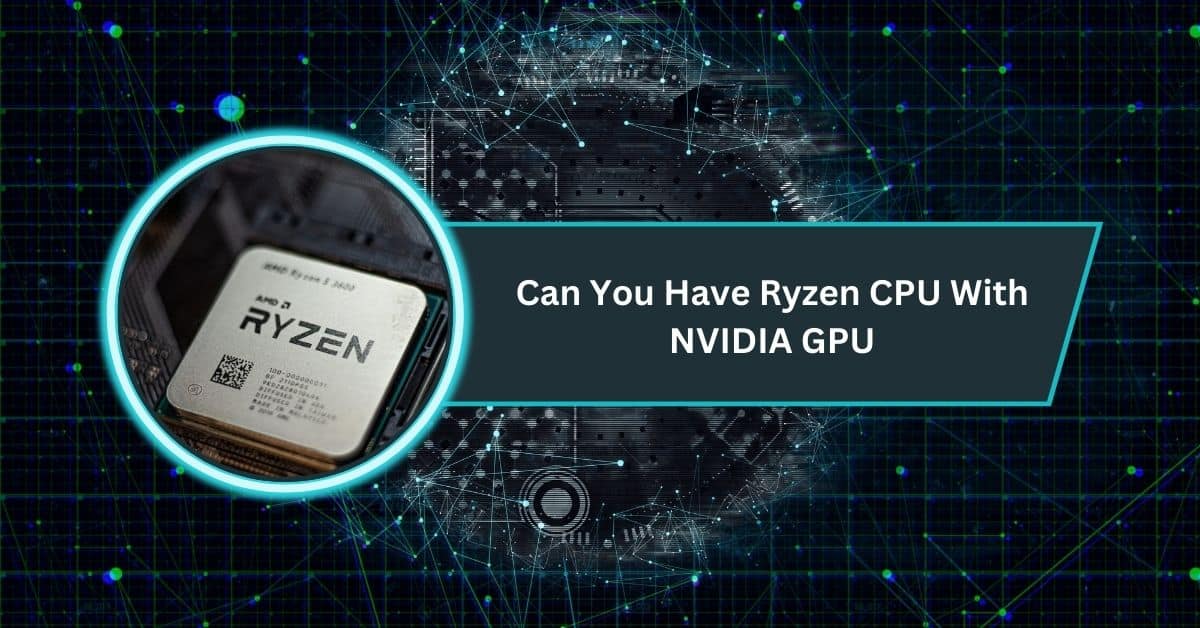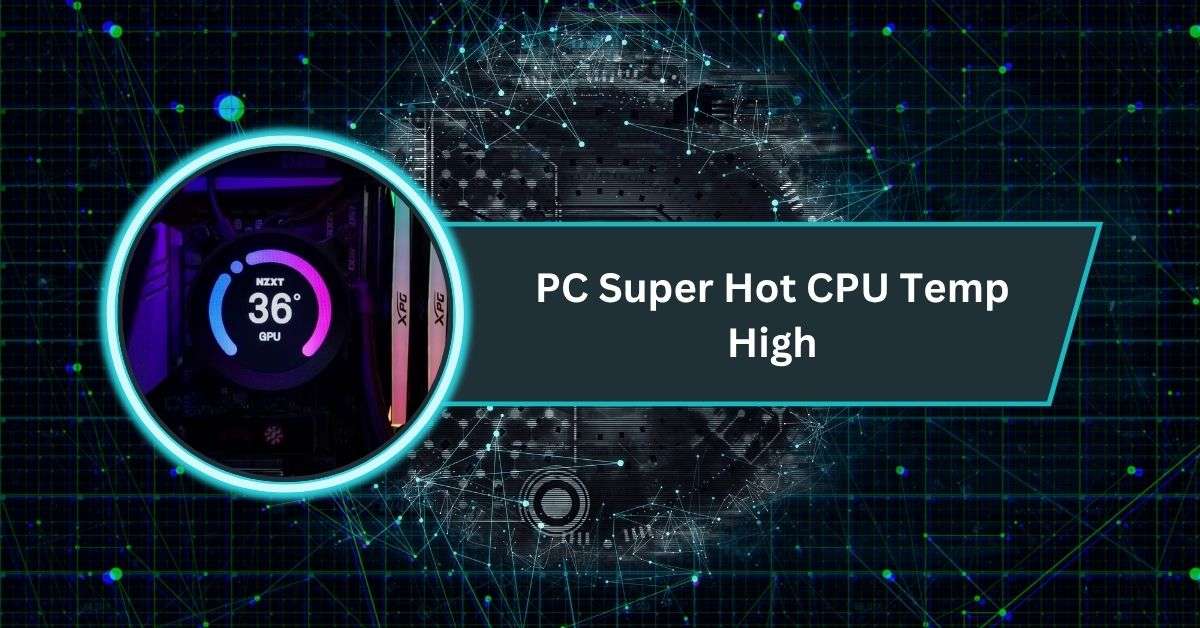Yes, you can use a Ryzen CPU with an NVIDIA GPU. Both connect through PCIe slots, offering full compatibility, smooth performance, and no issues when mixing AMD processors with NVIDIA graphics cards in modern systems.
In this guide, we’ll break down compatibility, performance, power needs, best combos, and some common myths that confuse new builders.
How Ryzen CPUs and NVIDIA GPUs Work Together
Ryzen processors and NVIDIA GPUs work perfectly fine together because of how PC hardware is designed. A CPU and GPU don’t need to come from the same brand. They communicate with each other through the motherboard using PCI Express (PCIe) lanes.
The CPU handles game logic, physics, and background processes, while the GPU focuses on rendering graphics. As long as your motherboard has the right socket for your Ryzen CPU and at least one PCIe x16 slot for the NVIDIA graphics card, you’re good to go.
Driver support is also universal. NVIDIA’s drivers work with both Intel and AMD CPUs, so you don’t need to worry about software conflicts.
Are Ryzen CPUs Compatible with All NVIDIA GPUs?
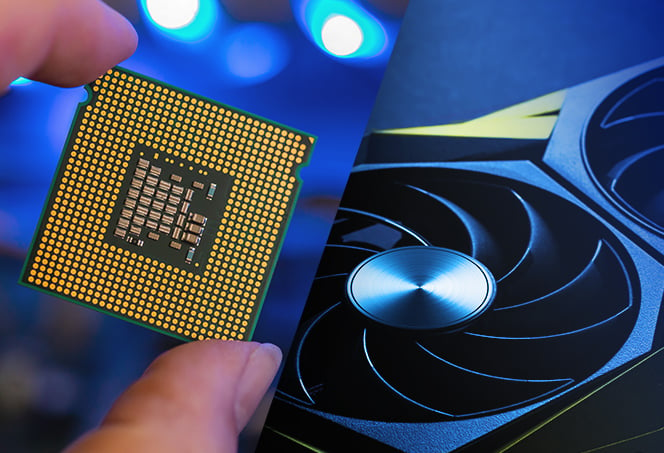
Yes. Any modern Ryzen processor can work with any NVIDIA GPU, whether it’s an entry-level RTX 3050 or a flagship RTX 5090. The key point is balance.
For example:
- A Ryzen 5 5600 will run fine with an RTX 3060 or 4060, but pairing it with an RTX 5090 would cause a bottleneck.
- A Ryzen 9 7950X3D, on the other hand, is powerful enough to handle even the most demanding GPUs without holding them back.
The motherboard also matters. Older AM4 boards may need a BIOS update to support newer Ryzen CPUs. Similarly, PCIe 3.0 motherboards will still run modern GPUs, but performance may be slightly limited compared to PCIe 4.0 or 5.0 boards.
Best Ryzen + NVIDIA GPU Combos in 2025
When choosing a CPU-GPU combo, the goal is balance. Here are some of the best pairings this year:
- Budget Build: Ryzen 5 7600 + RTX 4060
- Great for 1080p gaming at high settings. Affordable and efficient.
- Mid-Range Build: Ryzen 7 7800X3D + RTX 4070 Ti Super
- Perfect for 1440p high refresh rate gaming. Strong performance across modern titles.
- High-End Build: Ryzen 9 9900X or 9800X3D + RTX 5090
- A monster combo for 4K gaming, VR, and heavy productivity tasks. Future-proof for years.
- Streaming/Content Creation Build: Ryzen 9 7950X + RTX 4080 Super
- Excellent for those who game and stream at the same time or need rendering power.
These combos show that mixing AMD and NVIDIA is not only possible, but also very common.
Performance at Different Resolutions
Resolution plays a big role in whether your CPU or GPU is the limiting factor.
- 1080p Gaming: At lower resolutions, the GPU can render frames quickly, so the CPU often becomes the bottleneck. That’s why a strong CPU is more important for high FPS 1080p gaming.
- 1440p Gaming: This resolution balances GPU demand and CPU load. Both Ryzen CPUs and NVIDIA GPUs perform well here without major bottlenecks if matched properly.
- 4K Gaming: At 4K, performance is almost always GPU-limited. Even a mid-range Ryzen CPU can handle 4K if paired with a strong GPU like the RTX 4080 or 5090.
Power Supply & Cooling Requirements
Pairing Ryzen CPUs with NVIDIA GPUs also means paying attention to power and thermals.
- Power Supply (PSU): High-end GPUs like the RTX 5090 can draw more than 450W on their own. Add a Ryzen 9 CPU, and your total system power could exceed 700W. For safety, builders should go with at least an 850W or 1000W PSU when using flagship hardware. Budget and mid-range combos often run comfortably on a 650–750W PSU.
- Cooling: Ryzen CPUs are efficient, especially the 3D V-Cache models, but high-core CPUs like the 7950X do produce heat. NVIDIA cards also run hot under heavy load. A case with good airflow and a decent cooler (air tower or liquid AIO) ensures stable performance.
Features & Limitations of Ryzen + NVIDIA Pairing
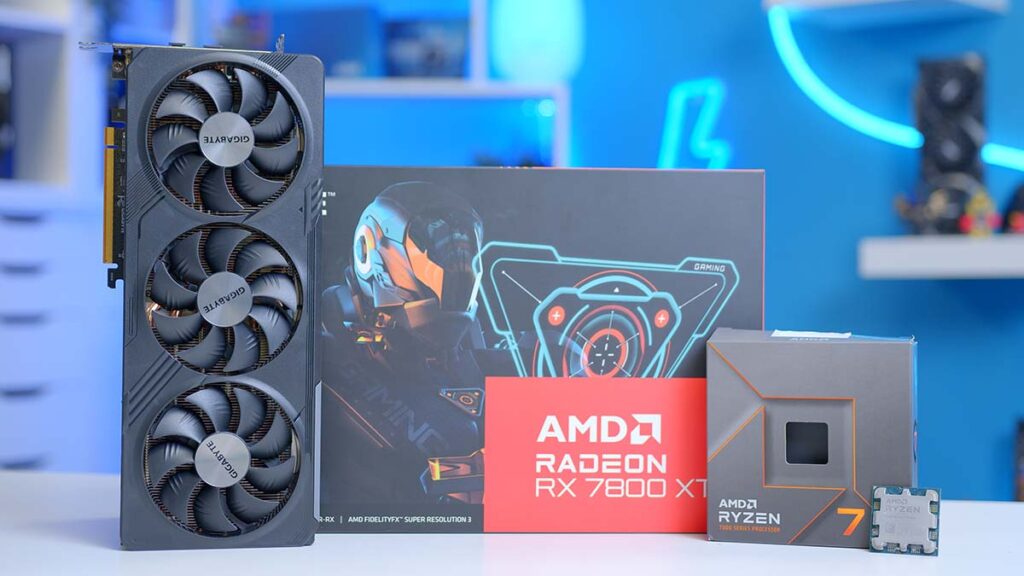
Using Ryzen with NVIDIA works perfectly, but there are some feature considerations:
- NVIDIA Features: DLSS, Reflex, and Ray Tracing all work regardless of CPU brand. These are GPU-side technologies and are not limited by using AMD processors.
- AMD Smart Access Memory (SAM): This is one area where NVIDIA falls short. SAM works best when both CPU and GPU are AMD. With NVIDIA, you can still use Resizable BAR, which is similar, but performance gains vary by game.
- Future Compatibility: Both AMD and NVIDIA regularly update firmware and drivers. PCIe 5.0 on newer Ryzen motherboards also ensures bandwidth won’t be a limiting factor for years to come.
Common Misconceptions and Myths
There are a few myths that confuse people when building a Ryzen + NVIDIA system:
- “You must match brands for best performance.”
False. Compatibility is based on standards, not brand loyalty. Ryzen CPUs work just as well with NVIDIA GPUs as they do with AMD GPUs. - “Performance drops with mixed brands.”
Also false. Performance depends on the specific CPU and GPU model, not the brand mix. A Ryzen 7 with an RTX 4070 will perform the same as an Intel i7 with the same GPU in most cases. - “Drivers conflict between AMD and NVIDIA.”
Incorrect. Drivers are independent. AMD updates CPU chipset drivers, while NVIDIA handles GPU drivers. They don’t interfere with each other.
Real-World Benchmarks & User Experiences
Benchmarks consistently show that Ryzen CPUs and NVIDIA GPUs are a strong match. For example:
- Cyberpunk 2077 (1440p Ultra, DLSS Quality):
Ryzen 7 7800X3D + RTX 4070 Ti Super → Average 110 FPS.
Ryzen 9 7950X + RTX 5090 → 180+ FPS at 4K with DLSS 3. - Fortnite (1080p Competitive Settings):
Ryzen 5 7600 + RTX 4060 → 240 FPS average, perfect for esports. - Starfield (4K Ultra):
Ryzen 9 9900X + RTX 5090 → Smooth 100+ FPS with Ray Tracing on.
These numbers prove that not only is Ryzen + NVIDIA possible, but it’s also one of the best combinations available for gamers and creators.
AMD CPU with Nvidia GPU laptop
Yes, many laptops come with AMD CPUs and NVIDIA GPUs. This combination is common because it offers strong performance, efficient multitasking, and excellent graphics power. It’s perfect for gaming, video editing, and everyday work without any compatibility issues.
Can you use Nvidia GPU with AMD motherboard
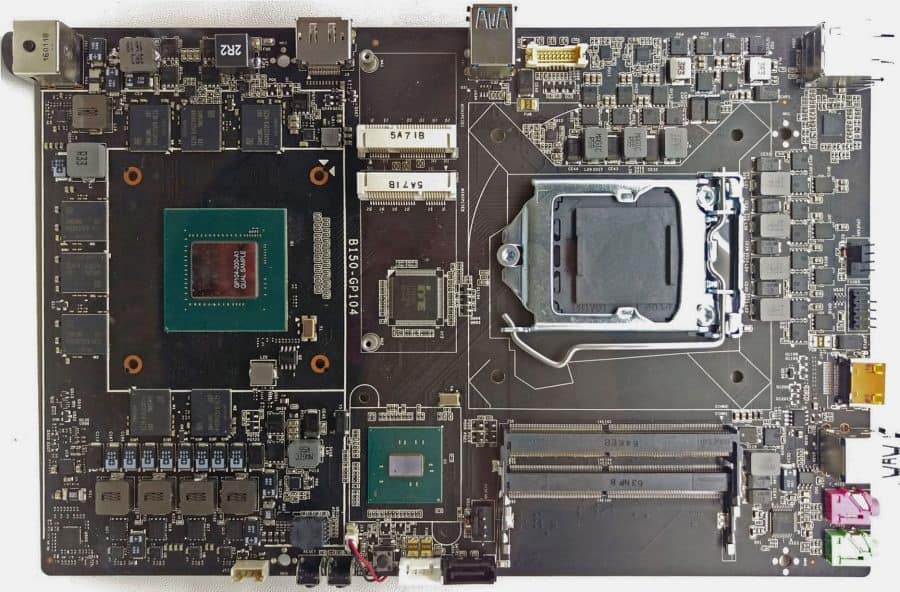
Yes, you can use an NVIDIA GPU with an AMD motherboard. As long as the motherboard has a PCIe x16 slot, the GPU will work fine. Compatibility depends more on the slot and power supply, not brand.
AM5 CPU with Nvidia GPU
AM5 CPUs work perfectly with NVIDIA GPUs. Whether you pair a Ryzen 7000 or 9000 series chip with an RTX card, the system runs smoothly. Just make sure your motherboard supports the CPU and you have enough PSU power.
AMD CPU with Nvidia GPU problems
Generally, AMD CPUs with NVIDIA GPUs don’t cause problems. Most issues come from outdated drivers, weak power supplies, or thermal limits. Keeping drivers updated, using a good PSU, and ensuring proper cooling prevents performance issues and system crashes.
Intel or AMD CPU with Nvidia GPU
Both Intel and AMD CPUs pair well with NVIDIA GPUs. The choice depends on budget and performance needs. Intel often offers slightly better productivity scores, while AMD Ryzen X3D chips lead in gaming. Both options give smooth compatibility.
How to update AMD CPU drivers with Nvidia GPU
To update AMD CPU drivers with an NVIDIA GPU, download the latest AMD chipset drivers from AMD’s website.
Then, install NVIDIA’s GPU drivers separately from GeForce Experience. Keeping both updated ensures smooth performance, stable gameplay, and fewer system bugs.
FAQs
Can you use a Ryzen CPU with an Nvidia GPU?
Yes, Ryzen CPUs work great with NVIDIA GPUs, offering smooth performance, wide compatibility, and excellent gaming or productivity results.
Can you use an AMD and Nvidia GPU together?
Yes, it’s possible, but unusual. Most people stick to one GPU brand for stability, driver support, and smoother overall performance.
Is an AMD CPU and GPU combo good?
Yes, AMD CPUs and GPUs together perform well. The combo supports Smart Access Memory, improving gaming speed and overall efficiency.
Can a CPU and GPU be combined?
Physically no, but some chips like AMD APUs or Intel CPUs include integrated graphics, working as basic CPU-GPU combinations.
Is AMD CPU and Nvidia GPU okay?
Yes, AMD CPUs and NVIDIA GPUs work perfectly fine together. Many gaming PCs use this combination without problems or limitations.
What GPU to pair with Ryzen?
It depends on your Ryzen model. Budget CPUs suit mid-range GPUs, while powerful Ryzen chips deserve high-end RTX cards.
Does a Ryzen CPU need a GPU?
Yes, most Ryzen CPUs need a separate GPU. Only Ryzen models with “G” have integrated graphics built into them.
Do Intel CPUs work with Nvidia GPUs?
Yes, Intel CPUs are fully compatible with NVIDIA GPUs. Builders commonly use this pairing in gaming PCs, workstations, and laptops.
Does Ryzen belong to Nvidia?
No, Ryzen belongs to AMD, not NVIDIA. Ryzen is AMD’s CPU brand, while NVIDIA only makes graphics cards, not processors.
Can I use AMD frame generation with Nvidia GPU?
No, AMD’s frame generation features work only with AMD GPUs. NVIDIA GPUs have their own DLSS 3 frame generation technology.
Conclusion
Pairing a Ryzen CPU with an NVIDIA GPU is not only possible but also one of the most popular choices for gamers, creators, and everyday users. Both work seamlessly together through PCIe slots, delivering smooth compatibility, excellent performance, and reliable stability.
Whether you’re building a budget system with a Ryzen 5 and an RTX 4060 or going all-out with a Ryzen 9 and RTX 5090, the combination works without issues. Just focus on balancing your components, ensuring a powerful PSU, and keeping drivers updated.
In short, there’s no disadvantage to mixing AMD CPUs with NVIDIA GPUs — it’s a trusted setup that continues to power millions of PCs worldwide in 2025 and beyond.










